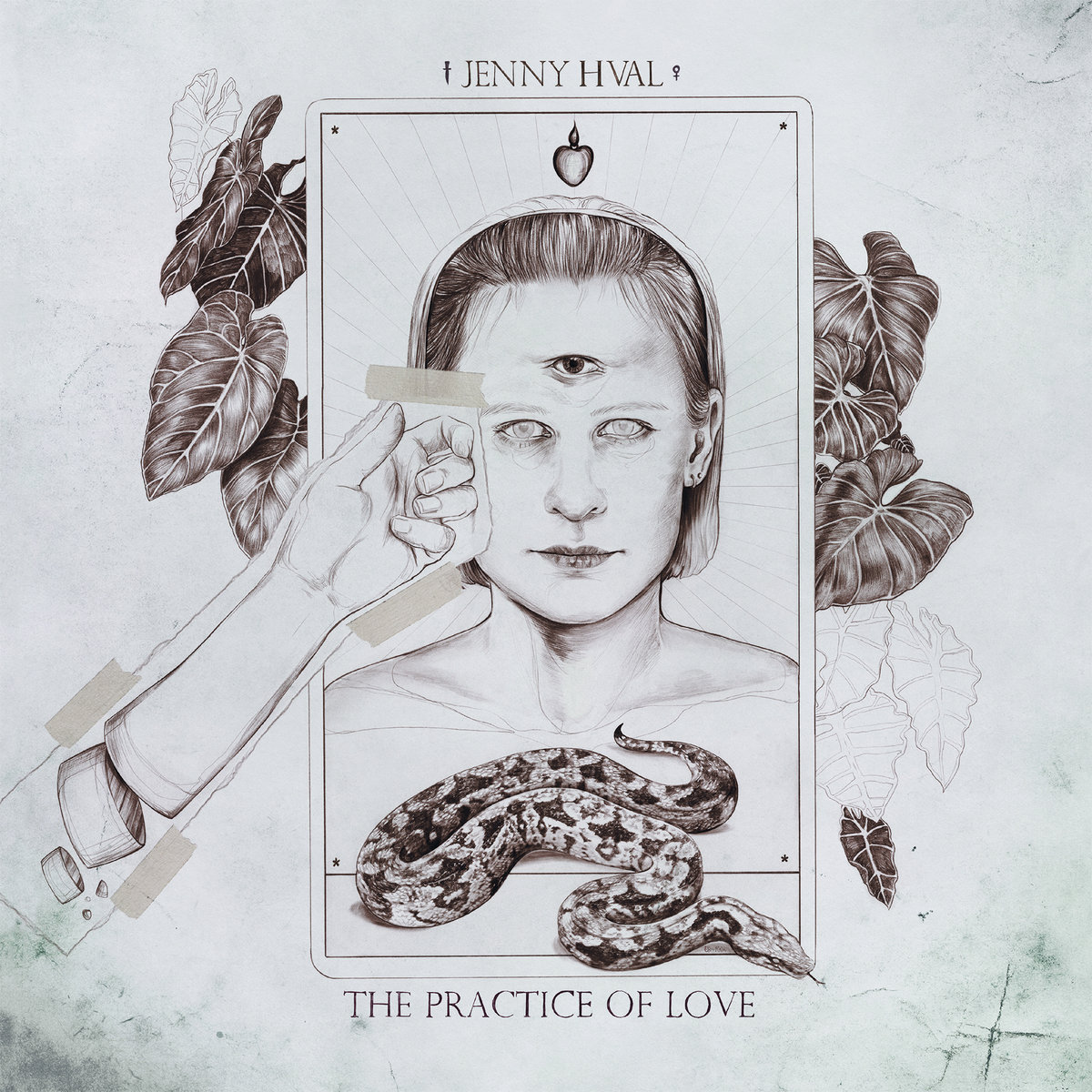“Intimacy really is a lifelong journey,” explains Jenny Hval of her latest LP, “the Practice of Love.” Love of what; a person, nature, life, god, death? The Norwegian artist has avoided popular tropes of love and romance in her music in favour of the abstract, metaphorical or the obscure, both in her lyricism and in her music. “The Practice of Love” is no ordinary love song either. “Study this and ask yourself, where is god” whispers Vivian Wang over the opening track “Lion,” which like the rest of the album observes the concept of love from the perspective of a disengaged philosophy student, using it as a metaphor for life.
Jenny Hval makes a case study of love with her collaborators Laura Jean, Felicia Atkinson and Vivian Wang across an LP that marks a significant shift from anything the artist has done in the past. From the raw and organic avant-folk of “Viscera” to the brooding electronica of “Blood Bitch,” Jenny Hval’s music, like her lyrics, have never quite conformed to the sonorous and the accessible aspects of popular music. “The Practise Of Love” plays on the mediative qualities of 90’s trance, where melodies touch hedonistic heights and ebullient percussive rhythms offer an exuberant pulse.
Breathy synthesisers, playing through ever-ascending arpeggios and wispy pads blowing through the progression like a light breeze, accentuate the serenity of Hval’s voice and her rumination on the album like never before. It provides a counterpoint to lyrics that often deal with sombre, bordering on morose, subjects. “She is flesh in dissent, She is an accident” she intones on “Accident” while Vivian Wang writes on the title track: “I hate ‘love’ in my own language. It contains the entire word ‘honesty’ inside it, which makes it sound religious, protestant, hierarchic, purified,” contrasting the buoyant textures floating past on a wavetable synth in the background.
Through the album, Jenny Hval moves through a multifaceted panorama on her subject, where the album could follow the narrative of a relationship with the bloom and eventual death of a romance, but could also relay the tapestry that the cycle imposes on a landscape viewed outside of the timeline. wHval describes the album as “almost like looking straight down into the ground, all of these vibrant forest landscapes, the type of nature where you might find a porn magazine at a certain place in the woods and everyone would know where it was, but even that would just become rotting paper, eventually melting into the ground.”
It’s at its most evocative on “Ashes to Ashes,” where songwriting takes the songwriter back to the earth, where themes of decomposition emerge on the uptempo beat of a four four kick and the tail of ambient pads drifting through the progression like a dream.
It’s part of a constant juxtaposition between exalting melodies and the unusual lyricism; and between the subject matter and its abstract interpretation, and it’s in these contrasting elements where the LP’s appeal lies. “I wanted to develop this new multi-tracked writing voice and take it to a positive, beautiful pop song place,”says Hval, “A place which also sounds like a huge pile of earth that I’m about to bury my coffin in.” There’s this chaotic relationship between lyrics album concept and execution which leaves a lot to unpack on this LP and marks the essential appeal of this record. Whether you’re trying to interpret the lyrics or you just want to get lost in beatific landscapes of the record, it’s an exquisite record.

